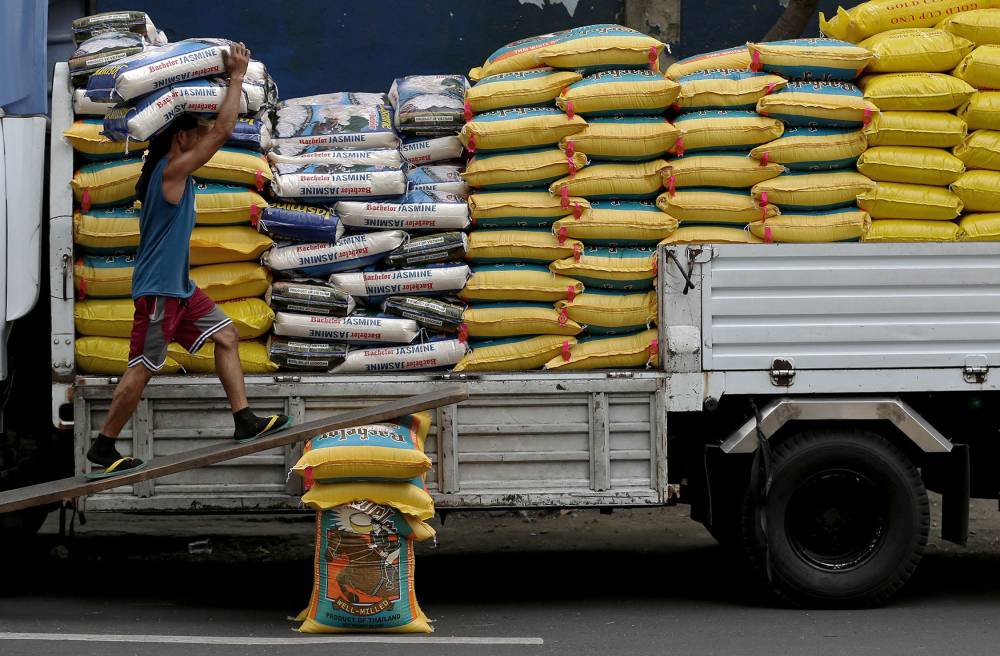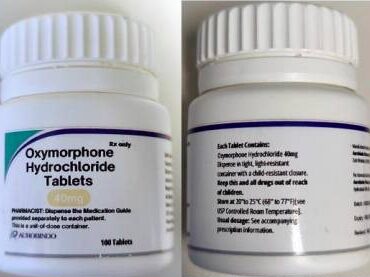Tariff execs face graft case over rice import tax implementation

A farmers’ group has brought another round of charges against officials of the Tariff Commission (TC), this time accusing them of graft for retaining in 2019 a low and outdated tariff rate even after a new law had imposed an increase on rice imports exceeding the government-set quota.
In its 37-page complaint filed in the Office of the Ombudsman on Monday, the Federation of Free Farmers (FFF), led by Raul Montemayor, said that TC Chair Marilou Mendoza and Commissioners Ernesto Albano and Marissa Paderon “chose to ignore and violate the law” when they did not comply with Republic Act (RA) No. 11203 in setting the out-quota tariff rates for rice shipments.
The law, which amended RA 8178 or the Agricultural Tariffication Act of 1996, sets the out-quota tariffs starting 2019 at 180 percent.
Out-quota duties refer to the higher rate of customs duty levied on an imported agricultural product in excess of its minimum access volume, or the quantity of that may be imported with a lower tariff that the Philippines committed to the World Trade Organization (WTO) to facilitate trade between countries.
Unilateral action
The rates could even be raised if the “calculated tariff equivalent,” which provides cushion to any impact brought by average price gaps in local and international markets, is higher.
Based on a document issued by the WTO in October 2019, the Philippine government had set a maximum of 198 percent as the tariff on rice imports coming from states that are not part of the Association of Southeast Asian Nations.
Thus, the complaint noted that the “unilateral” adjustment by the TC back to the old 50-percent tariff rate cost the government up to P1.87 billion in potential revenues from March 2019 until May 2021 had the correct rice import duty been imposed.
The “improper” acts of the TC officials to grant drastically reduced duties to private importers, it noted, “caused substantial injury to the government in the form of noncollection and loss of the differential tariff between the higher 180 percent, and subsequently, 198 percent” provided in RA 11203 and the 50 percent actually imposed by the agency.
“Effectively therefore, the respondents illegally gave these rice importers a special privilege not expressly provided by law, while depriving rice farmers of the funds clearly intended for them by law,” read the complaint.
The group also pointed out that such a move was a “gross dereliction of duty” and was “highly anomalous” as it robbed rice farmers of protection from “unlimited, improperly tariffed and cheap rice imports.”
Aside from violating Section 3(e) of the Anti-Graft and Corrupt Practices Act, the TC officials were accused of committing administrative offenses over the erroneous tariff rates.
FFF asked state prosecutors to file the appropriate charges against the TC officials on the basis of Section 1 of the Office of the Ombudsman’s Administrative Order No. 17.
Grave misconduct
The complaint comes just a little over a month after separate administrative charges were filed in the Office of the Ombudsman against the same TC officials, Mendoza, Albano and Paderon.
In their complaint in August, the FFF, chair Rosendo So of the Samahang Industriya ng Agrikultura Inc., United Broiler Raisers’ Association head Elias Inciong and former Magsasaka Partylist Rep. Argel Cabatbat sought the dismissal of the respondents from office.
According to the agricultural groups, the TC officials committed grave misconduct and gross abuse of authority when they allowed the further reduction of tariff rates for imported rice to 15 percent without any investigation or formal petition, a due process stipulated under the flexible clause of RA 10863, or the Customs Modernization and Tariff Act.
They were referring to Executive Order No. 62 issued by President Marcos in June lowering the duty on rice imports to 15 percent from 35 percent starting this year until 2028. INQ

















